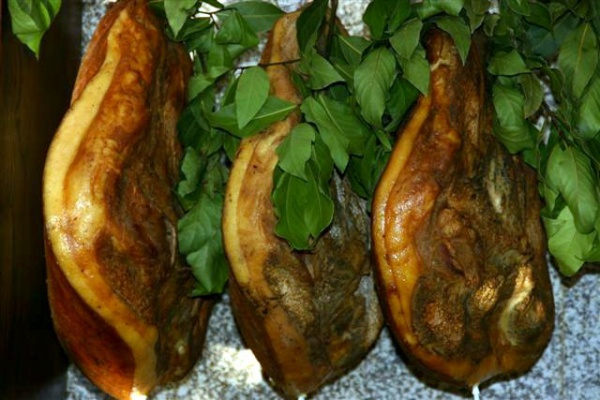Facts About Presunto
Presunto is a scrumptious dry-cured ham from Portugal, akin to Spain's jamón and Italy's prosciutto crudo. In Portugal, the most renowned varieties hail from Chaves in the north and Alentejo in the south, often crafted from local Alentejano pigs. Intriguingly, in Brazil, a wet-cured ham known as fiambre is also referred to as presunto. Some types of presunto are so distinctive that they are protected by European law due to their unique regional characteristics.
The term "presunto" has a fascinating origin. It derives from the Vulgar Latin past participle "persunctus" which comes from the verb "sugo" meaning "to suck." This contrasts with the Italian and Spanish terms, which originate from the Latin "praesumptus" meaning "to undertake or occupy."
In March 2014, six types of presunto received special protection under European law, earning designations like Protected Designation of Origin (PDO) and Protected Geographical Indication (PGI). These include:
- Presunto de Barrancos (PGI)
- Presunto do Alentejo and Paleta do Alentejo (PDO)
- Presunto de Barroso (PGI)
- Presunto de Campo Maior e Elvas and Paleta de Campo Maior e Elvas (PGI)
- Presunto de Santana da Serra and Paleta de Santana da Serra (PGI)
- Presunto de Vinhais or Presunto Bísaro de Vinhais (PGI)
These designations safeguard the traditional methods and regional flavors that make presunto a cherished delicacy.
